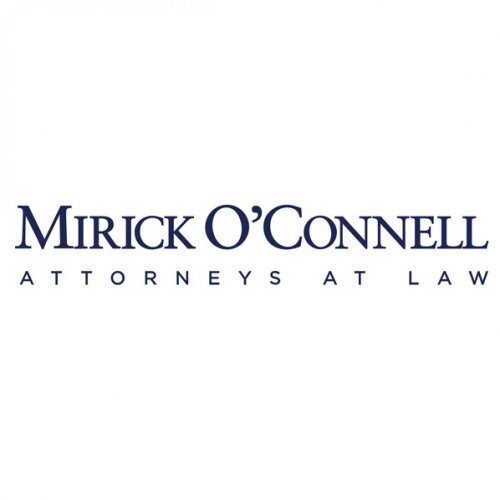Best Credit Repair Lawyers in Massachusetts
Share your needs with us, get contacted by law firms.
Free. Takes 2 min.
Or refine your search by selecting a city:
List of the best lawyers in Massachusetts, United States
About Credit Repair Law in Massachusetts, United States
Credit repair refers to the process of correcting inaccuracies, errors, or outdated information on your credit report to improve your credit score. In Massachusetts, credit repair is governed by both federal laws, such as the Fair Credit Reporting Act (FCRA) and the Credit Repair Organizations Act (CROA), as well as state-specific consumer protection statutes. These laws provide you with rights when disputing negative items on your credit report and offer remedies if you are the victim of unfair or deceptive practices by credit repair companies or creditors.
Why You May Need a Lawyer
Legal counsel can be highly beneficial in situations involving credit repair. If you have been denied credit, employment, housing, or insurance because of negative items on your credit report, a lawyer can help you understand and exercise your rights. You may also require legal assistance if:
- You discover inaccurate or fraudulent information on your credit report.
- You suspect you are a victim of identity theft.
- You are dealing with aggressive debt collectors or are being harassed about debts that are not yours.
- You have attempted to correct credit report errors with little or no success.
- A credit repair company is demanding upfront fees, making exaggerated promises, or refusing to honor refund guarantees.
- You are considering bankruptcy or have already filed.
- A creditor or debt collector is threatening legal action or has already filed a lawsuit against you.
A lawyer can help you challenge inaccurate information, represent you in negotiations or disputes, and make sure your consumer rights are protected.
Local Laws Overview
Massachusetts has several specific consumer protection laws relevant to credit repair, in addition to federal protections:
- Massachusetts Credit Services Organization Law (M.G.L. c. 93, § 68A-68E): Regulates the conduct of credit repair organizations, including clear contract requirements, prohibiting misleading statements, and restricting when fees may be collected.
- Massachusetts Consumer Protection Act (M.G.L. c. 93A): Prohibits unfair and deceptive practices by credit repair businesses and provides consumers with remedies, including the possibility of double or treble damages for willful violations.
- Right to Dispute: Massachusetts residents have the right to dispute errors in their credit reports with credit bureaus, who are required to investigate and correct verified inaccuracies.
- Restrictions on Fees: It is illegal for credit repair companies in Massachusetts to charge for services before they are fully performed. Contracts must detail the services and your cancellation rights.
- Statute of Limitations: Debts have a statute of limitations in Massachusetts - typically six years - which restricts how long a creditor can pursue collection through the courts.
Frequently Asked Questions
What steps can I take on my own to fix errors on my credit report?
You can request free copies of your credit reports from all three major credit bureaus. Review them for errors and use each bureau's dispute process to challenge incorrect or outdated information. Disputes must be investigated within 30 days.
How long does negative information stay on my credit report in Massachusetts?
Most negative information, such as late payments and collections, remains on your report for seven years. Bankruptcies can stay for up to ten years. If items are inaccurate, you can dispute them at any time.
Are credit repair companies legal in Massachusetts?
Yes, but they are heavily regulated. Massachusetts law prohibits false advertising by credit repair organizations and requires specific contract terms. Companies cannot charge fees before performing promised services.
Can an attorney remove accurate negative information from my credit report?
No attorney or credit repair company can lawfully remove accurate and verifiable negative items. Lawyers can help you remove or correct information that is inaccurate, outdated, or cannot be substantiated.
What should be in a contract with a credit repair company?
Contracts must itemize the services to be performed, the total cost, your right to cancel within three business days, and a detailed timeframe. Read any contract thoroughly before signing and never pay upfront.
Is it safe to share my Social Security Number with a credit repair attorney?
If you are working with a licensed Massachusetts attorney, sharing your Social Security Number is generally safe and may be necessary to access and dispute your credit information. Always verify credentials and ask about privacy policies.
Can I be sued for an old debt in Massachusetts?
Creditors have typically six years from the date of your last payment to sue you for a debt. After the statute of limitations expires, you generally cannot be legally forced to pay, although collection attempts may continue.
What are warning signs of a credit repair scam?
Be wary of companies that demand payment before services, guarantee the removal of accurate negative information, lack a physical business address, or pressure you to sign immediately. Consumers should always request written information.
If I find an error, how quickly must the credit bureau fix it?
Credit bureaus are required by federal law to investigate your dispute within 30 days. They must remove or correct verified inaccurate, incomplete, or unverifiable information.
What legal remedies do I have if a credit repair company violates the law?
You may file a complaint with the Massachusetts Attorney General, pursue a private lawsuit for damages, or request the cancellation of your contract. A lawyer can help you determine the best course of action and may secure compensation for unfair or deceptive practices.
Additional Resources
If you need more information or wish to file a complaint, consider these resources:
- Massachusetts Attorney General's Office, Consumer Protection Division - Handles consumer complaints and offers advice on credit and debt issues.
- Massachusetts Division of Banks - Regulates credit services organizations and investigates consumer complaints.
- Federal Trade Commission (FTC) - Provides consumer information about credit rights and credit repair scams.
- AnnualCreditReport.com - Authorized source for free annual credit reports.
- Legal Assistance Organizations such as Greater Boston Legal Services and Volunteer Lawyers Project for free or reduced-cost help.
Next Steps
If you believe you need legal assistance with credit repair in Massachusetts, start by gathering your credit reports, documenting any collection notices or correspondence from creditors, and collecting all relevant contracts or communications with credit repair companies. Then:
- Consult with an experienced Massachusetts consumer law attorney to discuss your specific situation.
- Check the attorney's credentials and experience with credit repair cases in your area.
- Ask about fee structures and whether your case may be eligible for contingency-based or limited-scope services.
- If your rights have been violated, your attorney can help you file complaints, negotiate with creditors or credit bureaus, or represent you in court proceedings.
- Continue monitoring your credit reports and keep copies of all correspondence or dispute submissions.
Taking proactive legal action can protect your financial future and help you navigate complicated credit repair issues confidently and effectively.
Lawzana helps you find the best lawyers and law firms in Massachusetts through a curated and pre-screened list of qualified legal professionals. Our platform offers rankings and detailed profiles of attorneys and law firms, allowing you to compare based on practice areas, including Credit Repair, experience, and client feedback.
Each profile includes a description of the firm's areas of practice, client reviews, team members and partners, year of establishment, spoken languages, office locations, contact information, social media presence, and any published articles or resources. Most firms on our platform speak English and are experienced in both local and international legal matters.
Get a quote from top-rated law firms in Massachusetts, United States — quickly, securely, and without unnecessary hassle.
Disclaimer:
The information provided on this page is for general informational purposes only and does not constitute legal advice. While we strive to ensure the accuracy and relevance of the content, legal information may change over time, and interpretations of the law can vary. You should always consult with a qualified legal professional for advice specific to your situation.
We disclaim all liability for actions taken or not taken based on the content of this page. If you believe any information is incorrect or outdated, please contact us, and we will review and update it where appropriate.
Browse credit repair law firms by city in Massachusetts
Refine your search by selecting a city.











